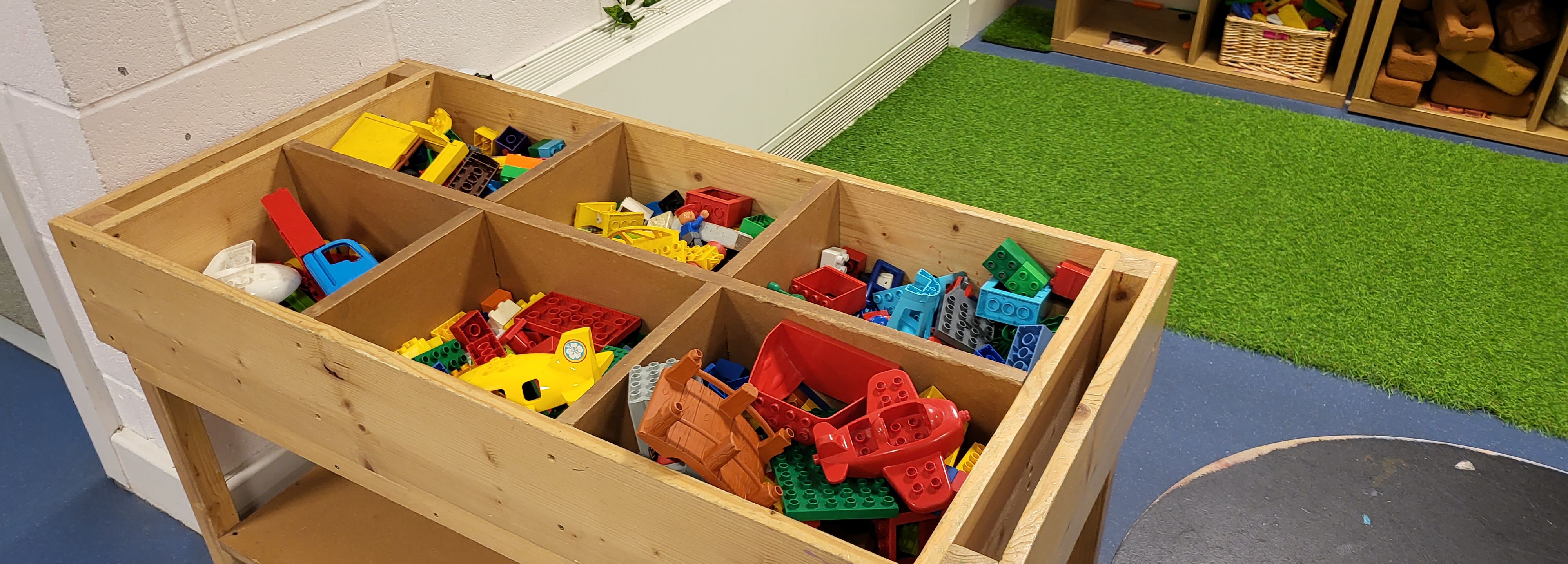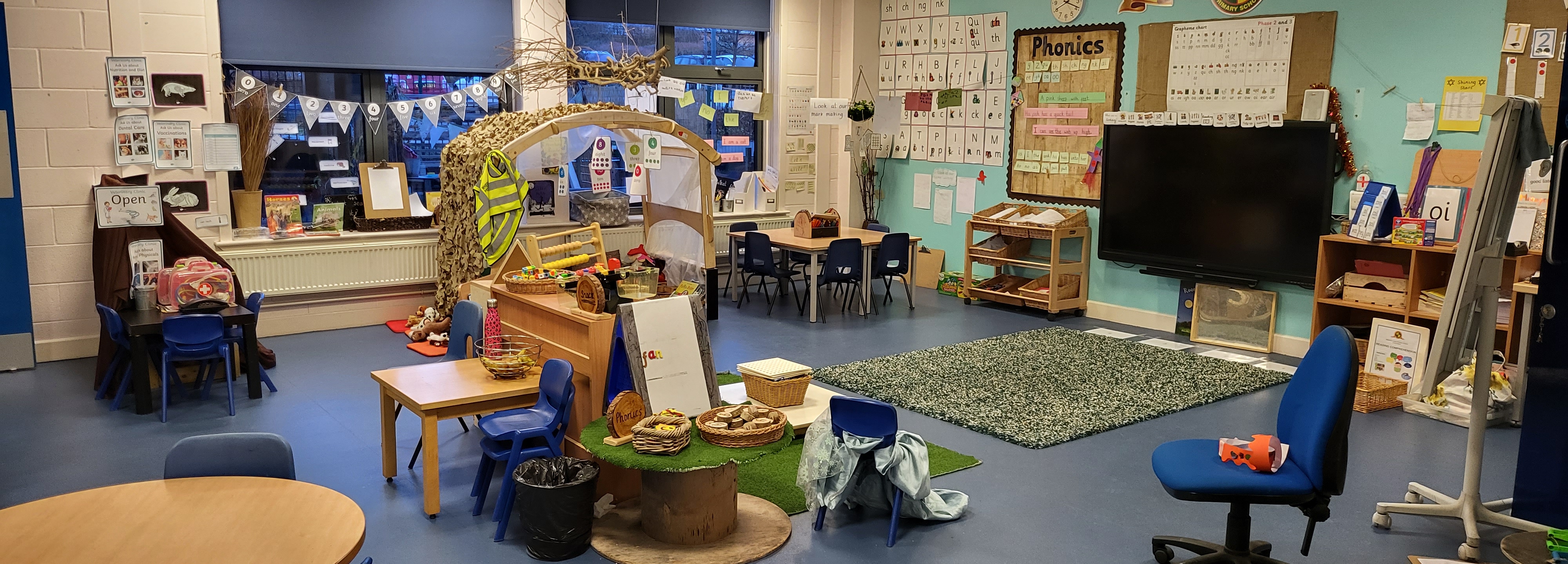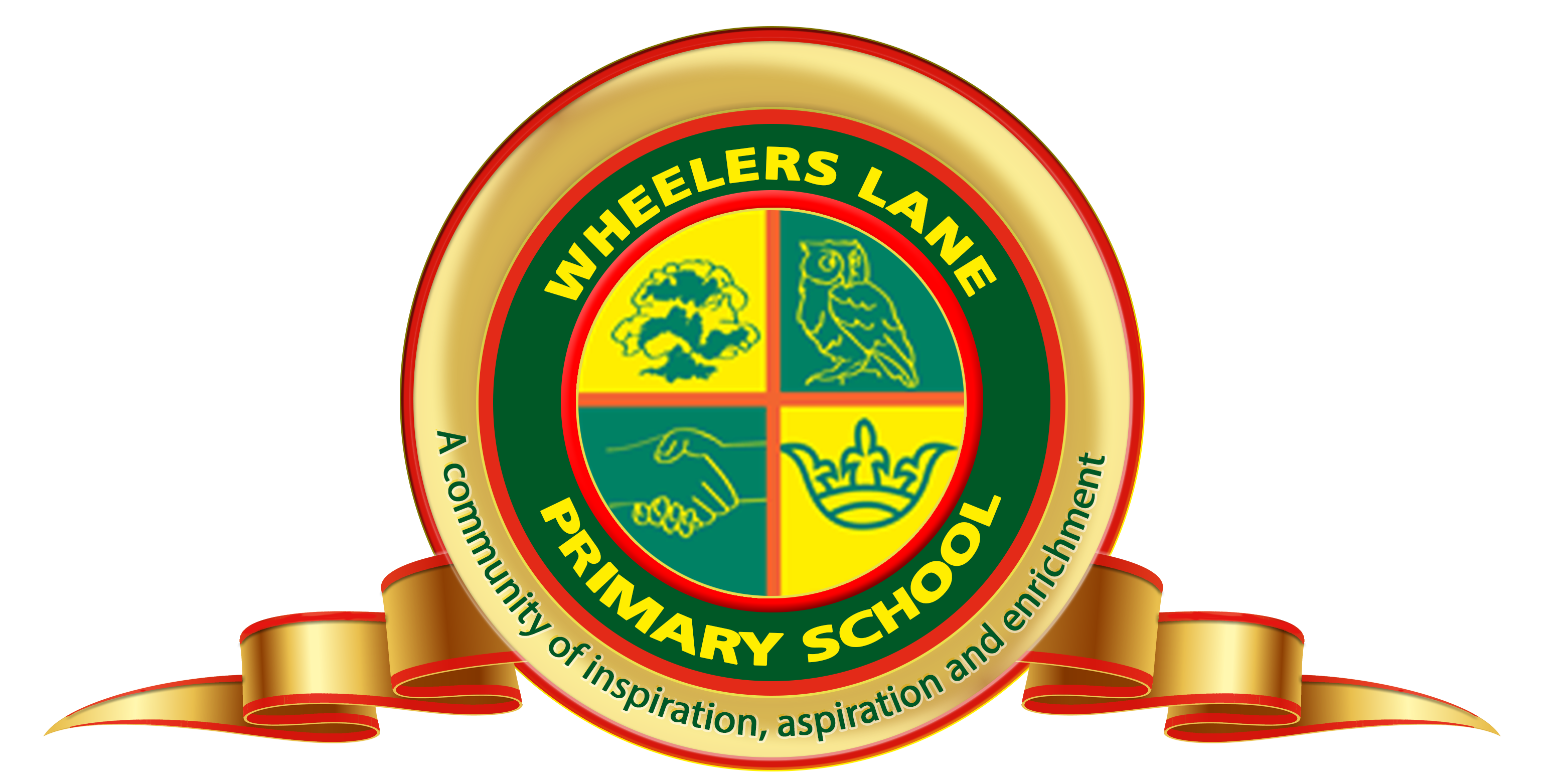EARLY YEARS FOUNDATION STAGE
At Wheelers Lane Primary School, we aim to provide the highest quality care and education for all our children thereby giving them a strong foundation for their future learning.
We create a safe and happy environment with motivating and enjoyable learning experiences that enable children to become confident and independent. We value the individual child and work alongside parents and others to meet their needs and help every child to reach their full potential.


We believe that every child deserves the best possible start in life and the support that enables them to achieve. Children develop quickly in the early years and a child's experiences between birth and age five have a major impact on their future life chances.
We adhere to the Statutory Framework of the EYFS and the four guiding principles that shape practice within Early Years settings:
Every child is a unique child, who is constantly learning and can be resilient, capable, confident and self-assured
Children learn to be strong and independent through positive relationships
Children learn and develop well in enabling environments, in which their experiences respond to their individual needs and there is a strong partnership between practitioners and parents and/or carers
Children develop and learn in different ways and at different rates
We provide an exciting and challenging curriculum based on our observation of children’s needs, interests, and stages of development across the seven areas of learning to enable the children to achieve and exceed the early learning goals.
All the seven areas of learning and development are equally important and inter-connected.
There are three areas that are particularly crucial for igniting children's curiosity and enthusiasm for learning, and for building their capacity to learn, form relationships and thrive. These three areas are the prime areas:
Communication and Language
Physical Development Personal,
Social and Emotional Development
Children are also supported through the four specific areas, through which the three prime areas are strengthened and applied. The specific areas are:
Literacy
Mathematics
Understanding the World
Expressive Arts and Design
Children are provided with a range of rich, meaningful first-hand experiences in which they explore, think creatively and are active. We aim to develop and foster positive attitudes towards learning, confidence, communication and physical development.
Practitioners working with the youngest children in Nursery will focus strongly on the three prime areas, which are the basis for successful learning in the other four specific areas. The three prime areas reflect the key skills and capacities all children need to develop and learn effectively, and become ready for school. The balance will shift towards a more equal focus on all areas of learning as the children move through the Early Years and grow in confidence and ability within the three prime areas.
Children have whole group and small group times which increase as they progress through the EYFS with times for a daily phonics session using ‘Letters and Sounds’, teaching aspects of Mathematics and Literacy, including shared reading and writing.
The curriculum is delivered using a play-based approach as outlined by the EYFS document. ‘Each area of learning and development must be implemented through planned, purposeful play and through a mix of adult-led and child-initiated activities’. We plan a balance between children having time and space to engage in their own child-initiated activities and those that are planned by the adults. During children’s play, early years’ practitioners interact to stretch and challenge children's understanding further.
Assessment is an essential part of the learning and development of children in the EYFS. It involves practitioners observing children to understand their level of achievement, interests and learning styles, and to then shape learning experiences for each child reflecting those observations.
On entry to Nursery and Reception we carry out baseline assessments for each child. These judgments are formed through a series of observations of children’s interactions and play. We record our observations in a variety of ways. Everyone is encouraged to contribute and discussions take place regarding each child. These judgments are moderated both in school and externally with early years practitioners from other schools.
Throughout the year, the teacher keeps progress records and learning journals; recording examples of each child’s learning in all areas of the EYFS curriculum. These progress books contain a wide range of evidence that we share with parents at each parental consultation meeting. Tracking grids are updated at the end of each term. This provides a summary of progress for each child which feeds into the whole-school assessment and tracking process.
Throughout the year, the teacher keeps progress records and learning journals; recording examples of each child’s learning in all areas of the EYFS curriculum. These progress books contain a wide range of evidence that we share with parents at each parental consultation meeting. Tracking grids are updated at the end of each term. This provides a summary of progress for each child which feeds into the whole-school assessment and tracking process.
